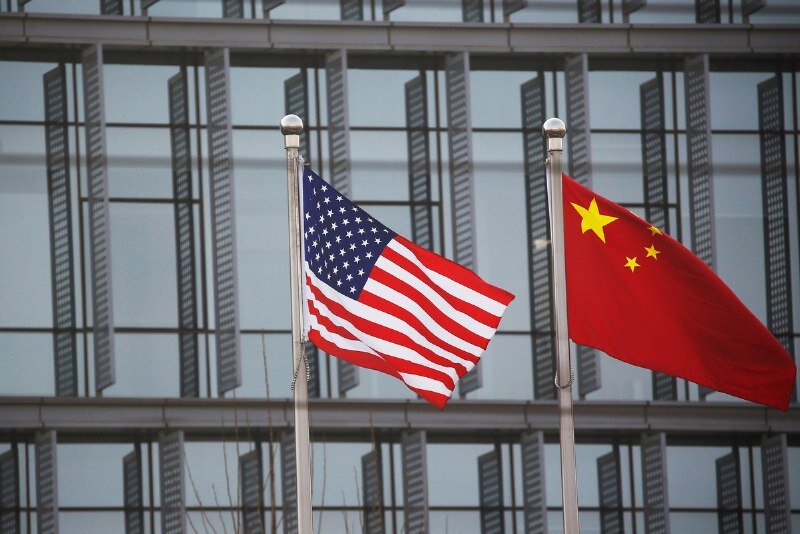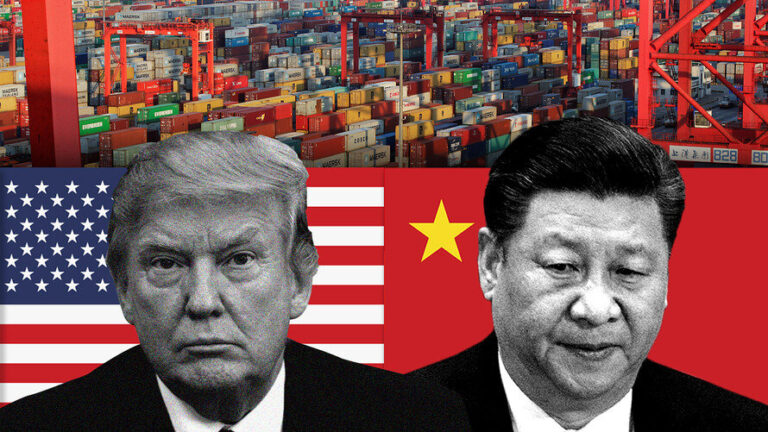Beijing Issues Stark Warning Against ‘Appeasing’ US Amid Ongoing Tariff War
In a significant escalation of the ongoing trade tensions, Beijing has issued a stern warning regarding potential retaliatory measures against nations that engage in trade agreements with the United States that compromise China’s interests. As the trade war between the two largest economies in the world intensifies, other countries find themselves caught in the crossfire.
In a recent statement, the Ministry of Commerce of China responded to the heightened US tariffs, emphasizing that “Beijing respects all parties’ efforts to resolve their trade disputes with the US through equal consultation.” However, it also made it clear that China will not tolerate any trade arrangements led by the US that are detrimental to its economic interests.
Here are some key points from China’s response:
- Firm Stance on US Tariffs: China categorically rejected the US tariffs, labeling them as “unilateral bullying” tactics in the realm of international trade.
- Concerns Over Trade Justice: The Chinese government warned that if international trade devolves into a situation where the powerful exploit the weak, it would lead to widespread victimization of nations.
- Countermeasures: China vowed to “respond resolutely and reciprocally with countermeasures” to protect its rights and interests, indicating a readiness to retaliate against perceived injustices.
Recent reports suggest that the Trump administration is contemplating strategies to exert pressure on US trading partners to limit their economic engagements with China during ongoing tariff negotiations. This could lead to secondary tariffs affecting countries that maintain close trade relations with China, adding another layer of complexity to an already fraught situation.
The implications of these developments are potentially vast, impacting not only the United States and China but also numerous other nations that may find themselves in precarious positions due to their economic ties. The interconnectedness of the global economy means that decisions made at the highest levels can have ripple effects across borders.
As the trade war escalates, countries are urged to consider the broader ramifications of their trade agreements. Here are some potential consequences of the ongoing trade tensions:
- Economic Uncertainty: Nations may experience significant economic uncertainty as trade relations between the US and China continue to shift.
- Increased Tariffs: Countries that align too closely with one side may face increased tariffs, impacting their export and import costs.
- Global Supply Chains: The stability of global supply chains could be jeopardized, leading to increased costs and delays in production.
- Investment Shifts: Investors may reconsider their strategies, leading to shifts in where capital is allocated across the globe.
Experts predict that the ongoing trade conflict could lead to a restructuring of global trade alliances. Countries may be forced to reassess their trade relationships and consider the potential fallout from aligning too closely with either the US or China.
In conclusion, the warning from Beijing serves as a pivotal moment in the ongoing trade war, highlighting the intricate dynamics of international trade. The prospect of retaliatory measures raises critical questions about the future of trade agreements and the balance of power in global economics. As nations navigate these turbulent waters, the need for diplomacy and collaboration becomes ever more apparent.
Moving forward, it is essential for countries to engage in dialogue and seek mutually beneficial resolutions to avoid further escalation of trade tensions. The stakes are high, and the implications of the decisions made in the coming weeks and months will resonate throughout the global economy.
As the situation develops, all eyes will be on how nations respond to these challenges and whether they can find a path forward that avoids exacerbating the trade war. The world watches closely as the dynamics of international trade continue to evolve.






